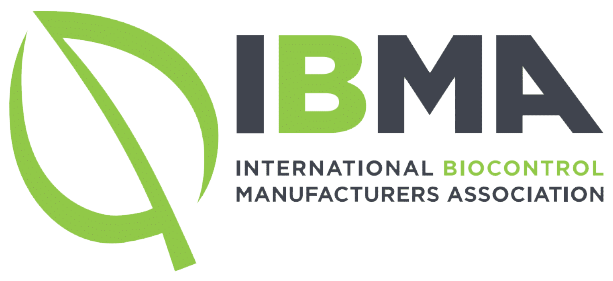The Strategic Dialogue on the Future of Agriculture was launched to address issues such as “a fair standard of living for farmers and rural communities” and “support agriculture within the boundaries of our planet and its ecosystems.” Professor Strohschneider, Chair of the Strategic Dialogue, invited IBMA and other organisations to share their views on a number of areas. You can read our contribution below and also download it here.
IBMA’s contribution highlights the critical need for farmers to have access to pest and disease control tools, such as biocontrol, in order to operate sustainably while maintaining a fair standard of living and profitability. The agricultural sector needs to thrive within the boundaries of our planet and its ecosystem, and to do so a holistic approach combining various sustainable practices is needed. Biocontrol technologies manage plant pests and diseases while enhancing biodiversity and reducing the risk of residues in food and the environment.
What’s more, changing practices on farms, applying new tools and techniques, requires know how. It is also that knowledge and technological innovation are connected to the reality on the ground. For this, financial incentives to access needed tools and knowledge should be provided via eco-schemes under the future new Common Agricultural Policy (CAP), including IPM training.
At consumer level, by enhancing transparency of information related to sustainable production, market pull for produce resulting from more sustainable practices can be created. The EU’s agri-food system must remain competitive globally.
The world is moving towards more biological approaches to pest and disease control, which are often more widely available in countries outside of the European Union due to their faster regulatory systems. This places an imperative on the EU to allow faster authorisation and market access for biocontrol products to ensure the ongoing competitiveness of European farmers.
Four questions were provided for organisations to address in their submissions. You will our contribution below and in this document.
How can farmers, and the rural communities they live in, be given a better perspective, including a fair standard of living?
- Both as a victim and a contributor, agriculture is deeply interlinked with climate change. Climate impacts on agriculture are numerous and range from extreme weather events causing floods and droughts to degradation of natural resources. As a consequence, farmers face growing challenges and concerns related to the health and productivity of their crops.
- If we want farmers to continue being profitable while operating more sustainably, they need access to credible and effective tools. Among those tools are biological control products, which are natural alternatives proven to control pests and diseases effectively and sustainably.
- To achieve access to such tools, farmers need incentives and financial support. Farmers cannot be green if they are in red: they need rewards and fair compensation to invest in better sustainability of their crops and production systems.
- Financial incentives should be provided through the Common Agricultural Policy (CAP) to support famers to transition towards sustainable production, including encouragement and support for the use of biological control.
- Funds through CAP eco-schemes were initially designed to make it financially interesting for farmers to sign up for the implementation of agricultural practices beneficial for climate change and the environment. However, eco-schemes are under-used due to greater use of direct payments supporting famers’ income based on the size of their operations. Most of the agricultural expenditure should in turn be allocated to supporting the transition towards sustainable farming practices, including using biological control.
- To incentivise farmers’ use of biological control, CAP should introduce mandatory requirements to apply integrated pest management (IPM). Additionally, CAP eco-schemes should provide support for specific biocontrol methods depending on the specificities of different crops.
- Rural broadband (4G and 5G) should be available to farmers so they can access latest technologies and innovations. In addition to accessing forecasting and monitoring information that can optimise the performance of biocontrol, digital connectivity can bridge disparity gaps and create opportunities for young farmers and families to rebuild rural communities.
- A new legislative package providing farmers with a comprehensive toolbox of sustainable practices and solutions (incl. Biocontrol) could be considered, guaranteeing their leverage through financial incentives in i.e. the CAP.
How can agriculture be supported within the boundaries of our planet and its ecosystem?
- There is broad consensus that we must change the way we do agriculture to stay within planetary boundaries, while also making sure we achieve food security and ensure a fair income for farmers.
- Sustainability and food security go hand in hand. Without a transition towards a more sustainable and resilient agriculture, productivity and food security are at risk as a result of poor soil health and climate hazards endangering crop production more and more, year after year.
- To succeed in the transition, a holistic approach is needed towards soil and crop health, by fostering synergies among various sustainable practices (e.g. biocontrol or precision farming) and transitioning to more resilient systems such as IPM, organic and agroecological farming systems.
- More specifically, controlling pests and diseases is part of the farming reality. Since 2011, farmers in Europe have been slowly reducing the use of chemical pesticides. However, they have insufficient alternatives such as biocontrol and other innovative Integrated Pest Management tools, so lack the tools to transition to more agroecological practices that can ensure long term productivity.
- Biocontrol solutions are tried and tested pest-control alternatives that work well with nature and support a productive agriculture within the boundaries of our planet. As a non-chemical and targeted input, biocontrol application enhances biodiversity and soil quality by creating favourable status for microbial communities. Biocontrol minimises chemical residues and therefore the risk of environmental contamination in soil, water and human health. What is more, the effectiveness of biocontrol is amplified in a sustainable farming system, which fosters a holistic transition to more agro-ecological farming.
- These solutions must reach farmers’ toolbox at scale. Once they do, they can provide effective pest and disease control on over 28 million hectares of which 23 million are arable crops, supporting Europe’s food security and strategic autonomy
How can better use be made of the immense opportunities offered by knowledge and technological innovation?
- Knowledge and technological innovation provide immense opportunities for the agricultural transition. However, better bridges must be built to connect knowledge and innovation to the reality on the ground.
- These bridges can be built at various levels: on-farm, at consumer level, and at national level.
- At a farm level, farmers should be trained on how to effectively implement IPM and use biocontrol, for instance via demonstrations on the ground in the presence of relevant stakeholders, to resolve practical issues and guarantee efficacy. This goal is partially pursued via EIP-AGRI funding schemes (i.e. Operational Groups), although applications for funding within those schemes are administratively burdensome. In addition to the previous, CAP funds should provide increased financial support to farmers for completing training required to transition to sustainability (i.e. biocontrol use). Finally, the creation of an online portal that collects best practices relevant for the sustainable transition should be encouraged, fostering knowledge-sharing among farmers. This could be a progression from the existing IPM database.
- At a consumer level, the environmental and health benefits of sustainable innovations such as biocontrol should be more transparent to consumers to inform their decision-making when purchasing agricultural produce. For instance, such benefits could be promoted through farm certification schemes, which in themselves can be an incentive for farmers to transition to new farming methods especially if the certification is recognised in the price of the final produce. Alignment of certification schemes should be encouraged as multiple certification schemes create further administrative burden for the farmers. In addition, publicly funded communication programmes to raise awareness of the broader benefits of IPM and biocontrol should be targeted at consumers.
- At a national level, national authorisation databases should be adapted to facilitate the identification and authorisation of biocontrol solutions. This should include all four categories of biocontrol (micro-organisms, macro-organisms, natural substances). Additionally, training for national advisers on IPM and biocontrol should be enhanced. This could be achieved by i.e. incentivising advisers to attend such trainings as a condition for renewal of professional advisory qualification or through continuous professional development (CPD) points. Also, through mandatory training on IPM and biocontrol within tertiary education and CPD programmes.
How can a bright and thriving future for Europe’s food system be promoted in a competitive world?
- Valued at €1.6 billion in Europe and €6 billion worldwide, the biocontrol industry contributes to Europe’s resilience and competitiveness by boosting sustainable economic growth and creating green jobs.
- EU Commission has made great progress in adapting data requirements for biocontrol submissions in Europe making the risk assessments more appropriate for microbials in particular and focusing on the weight of evidence approach. These important amendments are welcomed by the industry.
- Despite this, Europe lags behind in reaping the benefits that biological control can bring to its economy. The approval and authorisation process of biocontrol in the EU takes up to 10 years in the EU, compared to up to 3 years in other major markets. Such a long authorisation process leads to a low return on investment, making Europe the least attractive region to submit biocontrol globally.
- Small and Medium Enterprises represent 77% of the biological control industry. The current length of the authorisation process is an important obstacle for them to grow while their innovations are key for the agriculture transition and European economic growth.
- To drive the sustainability of its agri-food system and at the same time attract investments, Europe should accelerate market access of modern technologies, such as biological control.
- Targeted modifications to the current regulatory framework EC Reg No. 1107/2009 are a short/mid-term solution that has the potential to speed up the authorisation and time to market biocontrol products. This can be done by creating a green priority lane for biocontrol; removing time-limited registration; re-activating article 30 on provisional authorisation and facilitating label expansion3. These modifications could pave the way the next step to ensure Biocontrol availability for farmers: a potential Biocontrol regulation by 2029.
- Visibility to the consumers of sustainable agricultural production, for example using biocontrol, should be improved through inclusion in labelling or accreditations schemes. This would help drive the industry forward and stimulate market demand for greener products.
 Square de Meeûs 35, 1000 Bruxelles
Square de Meeûs 35, 1000 Bruxelles